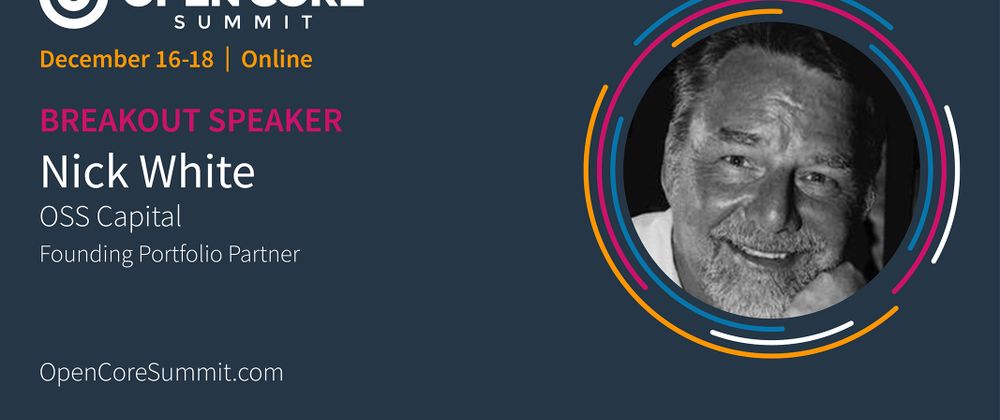Nick White is a founding Controller/CFO for incredible COSS companies like Talend, SpringSource, Elastic, and advisor to many more.
Relevant Links
LinkedIn - Twitter
Nick White is a founding controller/CFO for incredible COSS companies like Talend, SpringSource, Elastic, and advisor to many more.
(JJ introduces Nick and background across COSS companies) - 00:00
I’d love to dig into how you see commercial open source, and the big nuggets of wisdom on your mind for founders and for the ecosystem. - 1:06
I think you’ve enabled how valuable you can be to early-stage founders by pointing these things out. I want to dig into one thing you mentioned. Because open source is geographically distributed around the world, you described how an early-stage founder may need to have a global distributed operational complexity similar to that of a multi-billion dollar company, very early on in their journey. How do you advise startups at the very early stage to deal with that? - 13:05
I want to dig into your comment around driving for multi-year deals. When I was a salesperson at Talend, my incentive was to get these deals, because I got a bigger commission check. But you’re saying at the level of running finance, it’s actually often harmful to get these multi-year deals. - 17:33
I think you highlight something which may be generally true, for proprietary SaaS companies as well, which is don’t give away a huge chunk of your 5-10 year revenue streams by signing multi-year deals at massive discounts. - 21:35
I want to ask to you about capital efficiency. What do you think about the missed opportunities for capital efficiency in commercial open-source companies, as it relates to capital, finding a business model, or growing sales/marketing. What are the best underexplored/missed opportunities for capital efficiency? - 25:45
One of the things we launched recently was an analysis of all of the commercial open-source IPOs. This year we saw JFrog go public, you led Elastic to their IPO a few years ago. When going public, one of the biggest factors is revenue predictability. You’re switching from this private, opaque motion, to in the public eyes, everyone sees everything. You have to report detailed financials. So when should companies care about predictability? When should they start to build an engine that creates predictable outcomes on a quarterly/yearly basis? How early should they be thinking about that? - 29:33
One more question for you. This is a big topic in competitive dynamics, value capture, revenue generation, and market share. What are your views on open source and cloud providers? From a finance, money management, and competitive dynamic perspective, what have you observed around cloud providers and commercial open-source companies? - 33:43
(JJ responds and elaborates on hybrid models) - 35:24
Share your questions and comments below!



Top comments (0)